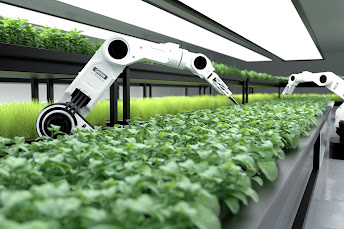Sustainable AgriTech: A Path to Modern Agriculture in India
In the vibrant landscape of Indian agriculture, the infusion of modern technology has become pivotal for ensuring sustainable practices and increased productivity. The integration of cutting-edge Agri-Tech solutions is reshaping the traditional farming methods, ushering in a new era of efficiency and environmental consciousness.
Embracing Innovation:
The agricultural sector in India has been historically rooted in traditional practices. However, with the advent of modern technology in agriculture in India, farmers are now adopting innovative solutions to enhance efficiency. From precision farming and data analytics to drone technology and smart irrigation systems, a wave of innovation is transforming the agricultural landscape.
Precision Farming for Enhanced Productivity:
Precision farming, enabled by modern technology, involves the use of GPS, sensors, and data analytics to optimize field-level management. Farmers can now monitor and manage their crops with unparalleled accuracy, ensuring the optimal use of resources such as water, fertilizers, and pesticides. This not only boosts productivity but also minimizes environmental impact.
Smart Irrigation Systems:
Water scarcity is a significant challenge in Indian agriculture. Smart irrigation systems, powered by modern technology, help farmers optimize water usage. These systems use real-time data to determine the precise irrigation needs of crops, promoting water conservation and reducing wastage.
Data-Driven Decision Making:
The integration of data analytics allows farmers to make informed decisions based on real-time information. From weather predictions to soil health analysis, data-driven insights empower farmers to implement timely and effective measures, ultimately leading to improved crop yields.
Environmental Sustainability:
Sustainable Agri-Tech goes hand in hand with environmental stewardship. By adopting eco-friendly practices facilitated by modern technology, Indian agriculture is moving towards a more sustainable future. Reduced use of chemical inputs, efficient resource management, and conservation-oriented approaches contribute to a greener and more resilient agricultural sector.In conclusion, the incorporation of modern technology in agriculture in India is not just a leap towards progress but a crucial step in ensuring sustainable and resilient farming practices. As the nation embraces these advancements, the trajectory of Indian agriculture is set to redefine global standards, balancing productivity with environmental responsibility.




.jpg)
Comments
Post a Comment